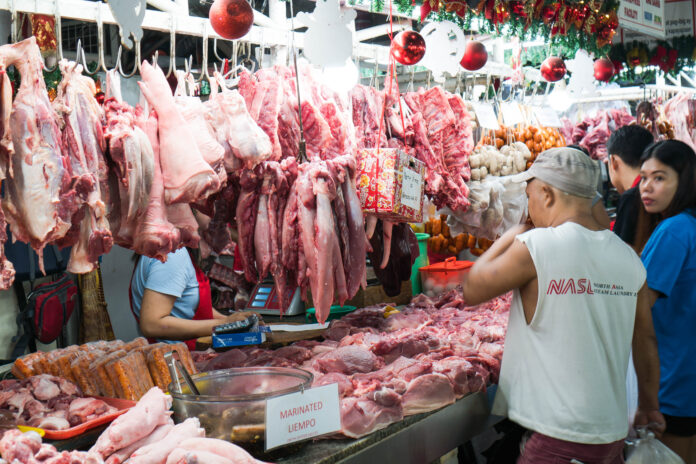Agriculture Secretary Francisco P. Tiu Laurel Jr. announced Tuesday that pork producers, traders, and retailers have agreed to review their cost structures in an effort to reduce the price of pork, which has become a growing concern for consumers.
In a statement following a consultative meeting with key stakeholders, Tiu Laurel said high pork prices are considered a short-term issue that should be addressed in the near future, particularly after the commercial availability of the African swine fever vaccine.
“We all agreed that high pork prices are a short-term problem that should soon be resolved,” he said.
The Bureau of Animal Industry is hopeful the outcome of ASF vaccine tests will convince the Food and Drug Administration to allow the commercial use of the vaccine. The meeting, convened by the Department of Agriculture (DA), sought to identify the factors driving the rising cost of pork and assess whether a maximum suggested retail price (MSRP) should be imposed to alleviate the burden on consumers.
“We are trying to strike a balance between the interests of consumers and those involved in the pork industry,” Tiu Laurel added.
“The clamor to bring the price of pork down is coming not just from consumers but from retailers as well; their sales are going down.”
Jason Cainglet, executive director of the agricultural group SINAG, advised the DA to temporarily refrain from imposing an MSRP, noting that farm gate prices for pork have already begun to decrease from P250 per kilo.
Tiu Laurel acknowledged the industry’s interest in making pork more affordable to consumers, especially as the price gap between locally-produced and imported pork widens. Imported frozen pork is currently priced around P250 per kilo, while local pork is sold at over P400 per kilo.
The DA chief said among cost structures under review are those of viajeros or traders now estimated to add P80 per kilo of pork.
Manny Pareja, a pork retailer from Las Pinas, told the consultative meeting that bigger customers such as restaurant and carinderia owners are already choosing imported meat over freshly slaughtered pigs. He said while many consumers still prefer fresh meat, the volume they buy has significantly shrunk because of the high price.
“Kung dati po isang kilo ang binibili, ngayon kalahati o one-fourth na lang. Minsan nga po, kapag nalaman ang presyo, tumatalikod na lang para bumili ng manok o isda,” he said.







